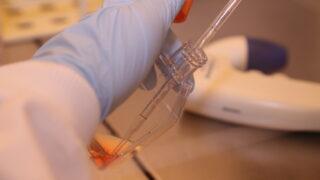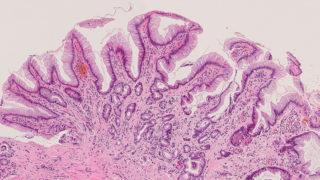Latest News
Search News
Categories
Archives
Study suggests simple blood test could help to monitor pancreatic cancer patients
28th April 2022
Researchers from Barts Cancer Institute at Queen Mary University of London have found it is possible to identify and track genetic variations in the tumours of patients with pancreatic cancer using a simple blood test.
Read moreRewiring the biology of leukaemia cells to reverse drug resistance
20th April 2022
Researchers from Barts Cancer Institute at Queen Mary University of London have identified a way to reverse resistance to a group of cancer drugs, known as kinase inhibitors, in leukaemia cells. By rewiring the inner workings of the cancer cells, the team was able to prime leukaemia cells for sensitivity to treatment in the laboratory.
Read moreProf Manchanda receives prestigious recognition from India’s leading medical school
17th March 2022
Congratulations to Professor Ranjit Manchanda from the CRUK Barts Centre who has been awarded the Distinguished Infosys Chair in Oncology at the All India Institute of Medical Sciences (AIIMS), New Delhi, India.
Read moreClinical study to investigate new personalised treatment for ovarian cancer
14th March 2022
Dr Michelle Lockley from Barts Cancer Institute at Queen Mary University of London has received funding from Barts Charity and the Anticancer Fund to investigate a new personalised treatment approach for ovarian cancer that has returned after previous chemotherapy.
Read moreUnderstanding the evolution of Barrett’s oesophagus to cancer
17th February 2022
February is Oesophageal Cancer Awareness Month. At Barts Cancer Institute, Queen Mary University of London, a key area of research focus is on a condition that can precede oesophageal cancer called Barrett’s oesophagus.
Read moreInternational Day of Women and Girls in Science
11th February 2022
This International Day of Women and Girls in Science, Radhisha Kohombage, an MSc student at BCI, spoke to some fellow students, to hear more about their roles, inspirations, and advice for the next generation who would like to pursue a career in science.
Read more





